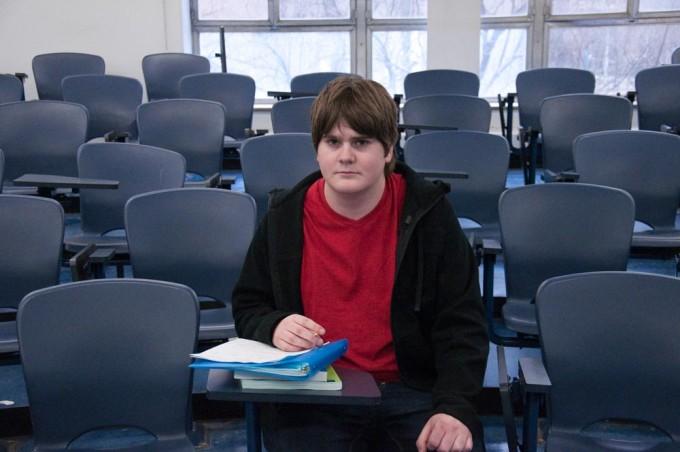Students with learning disabilities should have access to help and accommodation, but Ryerson’s focus on fairness doesn’t help everyone. News Editor Sarah Del Giallo reports
When Adam Beaudette writes an exam, it’s more frustrating than stressful. Regardless of how much he studies, Beaudette understands the questions, but confuses the detailed answers in his brain.
Beaudette, a second-year sociology student, has a rare learning disability that affects his memory. While he receives high marks on assignments, he will fail or barely pass his tests. He was diagnosed with a learning disability in grade nine after a psychoeducational assessment. He was reassessed in June 2010 and was diagnosed again as an adult.
His testing showed that he scored average in areas like math and reasoning. His processing speed and reading fluency were average, and his passage comprehension was superior. But in memory skills, Beaudette had a percentile rank of 0.2 out of 100. His immediate memory overall ranked 2 and delayed memory overall was 0.1.
“They said the problem was the same, if not worse,” said Beaudette.
Beaudette is using Ryerson’s Access Centre, which accommodates students with disabilities. He is given extra time on tests, is able to write in a different room, and is allowed to use queue cards. But the queue cards can’t include specifics.
Beaudette said while extra time is beneficial, his disability allows him to remember overall concepts but forget and mix details.
“I’m not allowed to write [detailed] information, and I have to use acronyms,” he said. “But I won’t remember what the acronym means. I get them mixed up.”
Beaudette said the Access Centre gives a blanket solution to unique learning disabilities.
“They don’t really give me anything that is really memory based,” he said. “It’s not like I don’t understand what’s going on, but when I go to write, I mix things up and can’t remember things properly.”
There were 5, 546 university students with learning disabilities in the most recent statistics from the Ministry of Training, Colleges and Universities from 2007-2008. This was a 17.9 per cent increase over five years, but students with learning disabilities made up only 2.24 per cent of the total post-secondary student population. There are currently just under 400 students with confirmed learning disabilities using Ryerson’s Access Centre.
Stefanie Marinich-Lee, manager of the Access Centre, said the accommodation process doesn’t provide an extraordinary advantage to any student. Alternate processes must still show that the student understands the course content.
“Each course or placement has learning outcomes identified. Every student needs to show they’ve achieved those learning outcomes.”
“The thing with accommodation is everyone is individual, but all universities are struggling with academic integrity. It’s a balance,” she said.
Academic integrity refers to maintaining standards for curriculum, evaluation, and student achievement. Accommodating students with disabilities is part of the human rights code. But there are no outlines on how accommodation should work.
Diane Wagner, manager public policy of the Learning Disabilities Association of Ontario said if accommodations are needed that the university doesn’t usually provide, negotiations are needed.
“In some cases, [universities] would say memory for something is what they require, but it could be counter argued that in the real world, you could have the information with you,” she said.
The Ontario Human Rights Commission provided a consultation report in 2003 titled The Opportunity To Succeed: Achieving Barrier-free Education for Students with Disabilities.
The Learning Opportunities Task Force was quoted saying “Appropriate accommodations should not lead to lowered standards or outcomes: rather, an appropriate accommodation will enable the student to successfully meet the essential requirements of the program, with no alteration in standards or outcomes, although the manner in which the student demonstrates mastery, knowledge and skills may be altered.”
But Beaudette doesn’t feel he’s being helped to succeed effectively in his courses. He has dropped out of three classes this semester.
“I’ve asked the Access Centre about things I can do alternatively to a test,” he said. “I don’t think it’s a fair measure of my intelligence and I don’t think they understand the extent of my disability.”
Photo by: Marta Iwanek













Leave a Reply